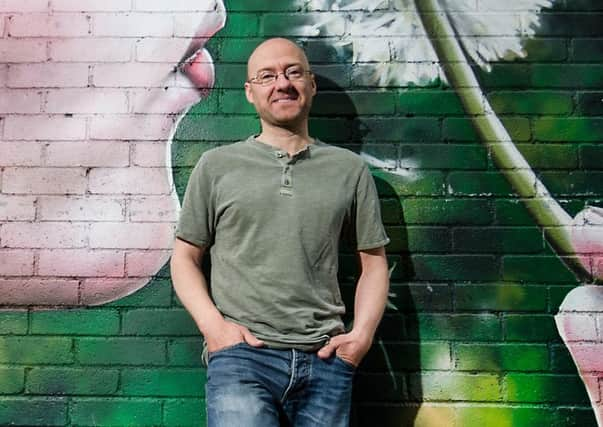Tom Peterkin: SNP heading for a high tax budget deal with Greens


The consequences of the SNP being reduced from a majority to minority government in last year’s Scottish election is being keenly felt in the corridors of power as the Scottish Government puts together its budget.
No longer can ministers wave through their legislation barely acknowledging the existence of opposition MSPs as they did when Alex Salmond’s administration dominated the chamber between 2011 and 2016.
Advertisement
Hide AdAdvertisement
Hide AdTimes may have changed, but there happens to be a hint of déjà vu as the Finance Secretary Derek Mackay negotiates with opposition parties as he attempts to cobble together a deal that will secure support for his budget.
The pre-budget talks are reminiscent of the SNP’s first Holyrood government when the behind the scenes cross-party machinations were such a feature of minority rule between 2007 and 2011.
Today Nicola Sturgeon and Mackay face an important test when their budget comes before MSPs for Stage I of its passage through the Scottish Parliament. Can the First Minister and her Finance Secretary win over enough opposition MSPs to get through a budget which is being attacked from all sides of the political spectrum?
Given the raft of new taxation powers that have come to Holyrood it is perhaps unsurprising that this extra dimension has emerged as the touchstone issue of the 2017 budget.
In the first budget that gives government the power over income tax bands and rates, Mackay has set out his stall to make Scotland the highest taxed country in the UK.
The disparity between Scotland and the rest of the UK comes through Mackay’s determination not to pass on a UK government tax break for higher earners. By failing to implement Chancellor Philip Hammond’s plan to raise the threshold for the 40p upper rate of income tax from £43,000 to £45,000, Mackay will hit the pockets of Scotland’s 370,000 upper earners. This is combined with a business rates policy that is more punitive than England’s plus the large business rates supplement and a move to increase council tax.
This approach is opposed by both the Conservatives and Labour, but for ideologically different reasons.
As things stand, Ruth Davidson’s Tories say they will not support a budget which will result in Scotland’s taxpayers facing a higher tax burden than elsewhere in the UK.
Advertisement
Hide AdAdvertisement
Hide AdKezia Dugdale’s Labour, on the other hand, says the SNP’s budget is not radical enough when it comes to tax hikes. Dugdale wants to see an extra penny across all bands of income tax and an increase in the rate for those earning more than £150,000 increased from 45 per cent to 50 per cent.
Labour’s objections to Mackay’s proposals also come down to the cuts planned for local authorities. Ahead of today’s Stage I debate, Labour has lodged an amendment to the budget motion calling on the Scottish Government to stop £327 million of cuts to local services.
So with the Tories and Labour implacably opposed to Mackay’s plans the Finance Secretary needs to look to the minority parties. Unlike the two main opposition parties, the Lib Dems have not made tax a red line issue in negotiations – despite Willie Rennie’s preference for an extra penny to be put on income tax.
Instead, their list of demands include more cash for mental health services, education, health and transport links. But as of yesterday afternoon, Lib Dem insiders said the party was a long way from supporting the budget. Their demand for an extra £200m to fund their key policy of introducing a step change in mental health treatment had not yet been met in talks with ministers. There is also the political consideration that Rennie’s party’s recent experience of propping up a government is not a happy one. Hence Rennie’s tough rhetoric that he would be prepared to push the Scottish Government into calling a snap election if the budget falls.
The reality, however, is that nobody really wants another election. Therefore, the widespread assumption on the eve of today’s debate is that Patrick Harvie and his five fellow Green MSPs will come to the rescue of the SNP. That impression was only underlined yesterday by Harvie’s appearance on the BBC’s Politics Scotland programme when the Green co-leader said he was “not willing” to see the budget fall. It may be that Harvie and his colleagues choose to abstain today, and doing so should be enough to ensure that the SNP’s 63 MSPs carry the day.
Abstention is a tactic Harvie could present as a stay of execution for the government, giving the Greens more time to extract concessions from Mackay as the budget process moves to Stage II and III.
Of all the Holyrood parties, the Greens have the most radical tax raising agenda with their policies including plans to tax income above £43,000 at 43 per cent and income above £150,000 at 60 per cent.
In past appearances in the chamber, Harvie has warned that he will be unable to support the budget unless Mackay makes “meaningful” progressive tax changes.
Advertisement
Hide AdAdvertisement
Hide AdFrom the SNP’s point of view there is good reason to keep the Greens onside and give meet some of their demands. As a second referendum becoming ever more likely, it is advantageous for the SNP to keep in with the only other independence-supporting bloc of MSPs in the parliament.
The skeleton of a deal is in place, but at what cost to the Scottish taxpayer?